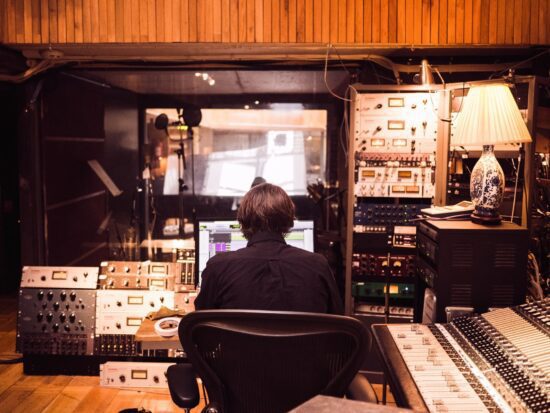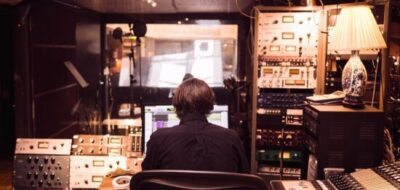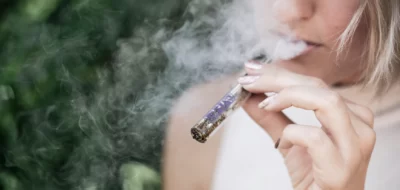Imagine, if you will, a world where the melodies and rhythms that move us are intricately linked to the mystical properties of cannabis. This isn’t a new concept; from ancient India’s soul-stirring ragas to contemporary hip-hop’s rhythmic heartbeats, cannabis has been a silent partner in the dance of musical innovation. Musicians from diverse backgrounds often attribute a part of their creative genius to this green muse, believing it to be a key that unlocks new realms of relaxation, experimentation, and unfettered expression.
But how much truth lies in these claims? In our exploration today, we’ll delve into the scientific realm to unravel the effects of THC, the enigmatic psychoactive constituent of cannabis, on musical creativity. We’ll sift through the evidence, weigh the pros against the cons, and seek to understand whether cannabis truly holds the power to enhance the art of music-making.
THC, the Brain, and Music
Music engages a symphony of brain regions – from the auditory cortex to the limbic system, each playing a vital role in our perception, creation, and appreciation of music. THC interacts with the brain by latching onto cannabinoid receptors, which are crucial in mood, memory, and cognitive regulation. It’s known to trigger the release of dopamine, a neurotransmitter linked with pleasure and motivation, potentially heightening music’s emotional and aesthetic appreciation.
THC can also alter perceptions of time and sound, making musical experiences more vivid. Yet, there’s a flip side: THC can impair memory and cognition, potentially obstructing the learning and manipulation of musical information, and can hamper the focus and execution of complex musical tasks.
Scientific Perspectives on THC and Musical Creativity
Musical creativity is multifaceted, encompassing fluency, flexibility, originality, and elaboration. Studies have tried to unravel THC’s effects on these aspects, with mixed results. For instance, a 2014 study by Kowal et al. found that high doses of THC hampered creative thinking, while a 2022 Harvard Business Review piece suggested THC might inflate one’s perception of one’s creativity without necessarily enhancing it. A 2023 Japanese study echoed similar sentiments, indicating that while psychedelic drugs, including THC, impact sensory perception, they might impede the cognitive processes vital for musical creativity.
Balancing Scientific and Anecdotal Evidence
Contrasting these findings with the anecdotal experiences of musicians paints a complex picture. Many musicians, like Bob Marley and Willie Nelson, have spoken about cannabis’s role in their creative processes, often attributing enhanced creativity and relaxation to its use. This dichotomy prompts us to consider that THC’s impact might vary based on individual, dose, and context. Moreover, other elements like practice, inspiration, and collaboration could play significant roles, potentially overshadowing or interacting with THC’s effects.
Weighing the Pros and Cons of Cannabis as a Musical Enhancer
When we consider the role of cannabis in music creation, the evaluation calls for a careful, nuanced approach, recognizing the complex interplay of benefits and drawbacks.
The Pros: Unleashing Creative Potential
Anxiety Relief: It’s like a soothing balm for those pre-show jitters or creative blocks, setting the stage for a more relaxed, open approach to music.
Spark of Imagination: Picture cannabis as a key unlocking door to new, unexplored musical landscapes, where ideas flow with an unconventional flair.
Sensory Amplification: It’s like turning up the volume on your senses, potentially enriching every note and harmony you create.
The Cons: Considering the Risks and Limitations
Cognitive Hiccups: There’s a catch – memory lapses and focus issues might sneak in, potentially tripping you up in recalling tunes or nailing complex pieces.
Dependency Dance: Tread carefully; this path can lead to needing more for the same creative buzz, a risky rhythm to maintain.
Legal Beats: Remember, the law doesn’t dance the same tune everywhere, and there’s a social beat to consider, too – public image and professional ties could be at stake.
As we ponder these aspects, it’s worth noting the growing accessibility of cannabis products tailored for creativity. For instance, manufacturers like New Orleans-based Crescent Canna regularly share their THC edibles and beverages with artists seeking to explore the creative benefits of cannabis, providing a convenient way to experiment with dosage and effects. Crescent Canna’s THC seltzer is even for sale at many famous music clubs, as well as in the green room for artists to enjoy before going on stage.
A Complex Symphony
THC’s influence on musical creativity is a nuanced and varied symphony, influenced by dosage, individual factors, and context. While it can alter brain activity and potentially enhance the subjective experience of music, its actual impact on creativity is more ambiguous. Musicians considering cannabis as a tool should weigh its legal status, quality, and potential side effects, seeking a harmonious balance with other aspects of their musical journey. What are your views on cannabis’s role in musical creativity? Let’s continue this conversation in the comments below.









